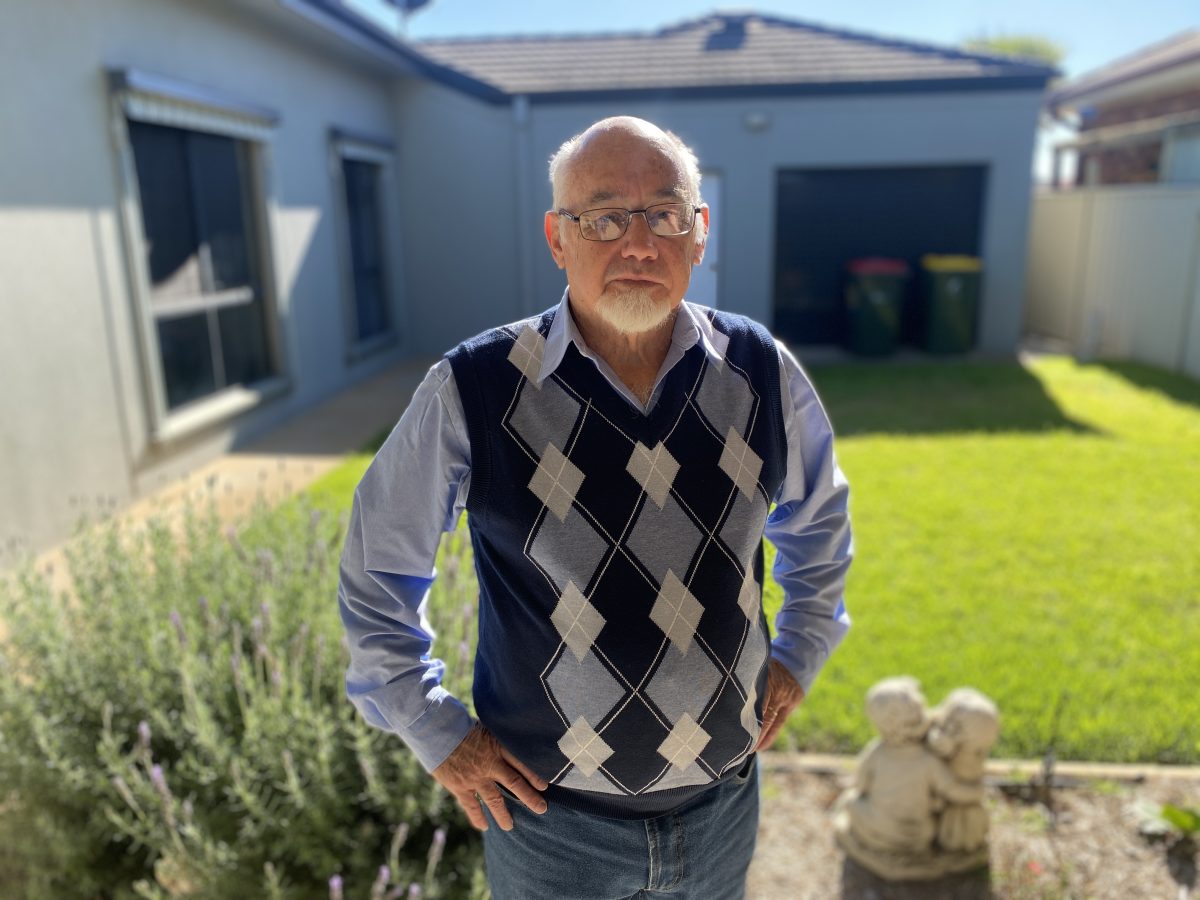
Griffith’s Col Beaton recommends speaking to a variety of health professionals about a prostate cancer diagnosis. Photo: Oliver Jacques.
Former US president Joe Biden’s recent diagnosis of an “aggressive form” of prostate cancer that has spread to his bones is a timely reminder for Riverina men in their 40s and 50s to test themselves as soon as possible, according to a local survivor.
“Riverina has one of the highest rates of prostate cancer in Australia,” Griffith Prostate Cancer Support Group member Colin Beaton said.
“There’s no symptoms for prostate cancer like we’ve got with breast cancer.
“How most people pick it up is they go to the toilet too much. And that’s how I picked mine up.”
Early detection the key
Mr Beaton said early detection was crucial, preferably during stage one – when the cancer had not yet spread outside of your prostate.
At this point, it was curable and you had several treatment options, including radiation therapy, hormone therapy and chemotherapy.
Radiation therapy may cause damage to the bladder, so Mr Beaton recommended looking into it and speaking with other health professionals, such as the prostate cancer specialist nurse based in Wagga.
Mr Biden’s prostate cancer has metastasised, meaning it has spread outside of the prostate. It’s often referred to as advanced or stage-four prostate cancer.
“It’s a pity it [Mr Biden’s cancer] has metastasised,” Mr Beaton said.
A global study looking at 30 types of cancer in men has projected that men’s cancer rates are set to exceed 80 per cent by 2050, with Australia at the top of the list.

Former US president Joe Biden’s cancer wasn’t detected until after it spread to his bones. Photo: Facebook/Joe Biden.
This means that out of more than 185 countries, Australian men have the highest likelihood of developing cancer.
In 2022, the Prostate Cancer Foundation of Australia (PCFA) found that the most common type of cancer diagnosed in Australia is prostate cancer, with the Riverina region having the highest rate of stage-one diagnosis.
Aside from men related to other men with prostate cancer, Aboriginal and Torres Strait Islander men, African men and men with a family history of women having breast and cervical cancer are more at risk.
Currently, Australia has no national screening program for prostate cancer.
Stigma stemming from misconception
Prostate cancer is still a stigmatised topic because many men still think it involves digital rectal examination.
“Which is the finger up the backside,” Mr Beaton said. “So that’s why there’s a stigma around it.”
Now prostate cancer screening is done through a blood test, known as the Prostate-Specific Antigen (PSA) test, which measures the amount of prostate-specific antigen in your blood.
Doctors are often reluctant to do a PSA test because it isn’t foolproof, meaning the result may come back as a false positive or not detect prostate cancer at all.
“So if you’ve had sex before the blood test, or if you’ve played sport within a couple of days, or if you had something spicy, that can affect the reading in the blood test results,” Mr Beaton said.
As a prostate cancer survivor, the 72-year-old aims to raise awareness and prevention of the disease through his work at his support group, which hosts information nights every third Thursday of the month from February to November.
The group members are not medical experts, they are survivors hoping to provide support and raise awareness for prostate cancer. Family members, men without prostate cancer and the general public are welcome.
Common symptoms include blood in the urine or semen, or needing to go to the toilet more often than usual.
Mr Beaton was diagnosed with stage one of the disease in 2017, and has passed the five-year cancer-free benchmark that some doctors use to determine whether someone is clear of the cancer.
Some cancer cells may remain in your body, and usually come back within the first five years after treatment.
However, he’s still pushing for men to have a PSA test regularly just in case. He’s known men who have had prostate cancer again even after being free of it for 20 years.
The Griffith Prostate Cancer Support Group is not made up of medical professionals. Contact your local GP or visit PCFA for more information. The group hosts information nights every third Thursday monthly between February and November.







